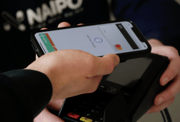Worker loses more than $100,000 superannuation fund: ‘Do I have to work till I die?’
By
Seia Ibanez
- Replies 14
As we navigate the complexities of the digital age, the convenience of managing our finances online comes with a stark warning: cybercriminals are on the prowl, and your superannuation could be their next target.
This cautionary tale from Melbourne serves as a chilling reminder to all of us, especially those who have spent a lifetime building their nest eggs.
Aaron Willcox was preparing to file his tax return when he encountered an unexpected hurdle: he couldn't log into his Australian Taxation Office (ATO) account. This was a red flag for fraudulent activity, which the ATO had detected.
But the real shock came when Willcox discovered that not only had someone accessed his account, but they had also rerouted hundreds of dollars to different bank accounts and drained his entire superannuation fund of over $100,000.
‘This happened in the last three or six months...and those bank accounts didn't belong to me,’ Wilcox said.
Willcox mentioned that the ATO assisted him in resetting his account and requested security documents for identity verification.
After entering his superannuation details, the system indicated that his account ‘didn’t exist’.
He promptly accessed his Hostplus account and found that his entire superannuation savings had been emptied.
‘There was nothing there except for four documents, and those documents outlined how, on the 16th of June, someone had decided to roll over my super into another super fund and then close my account,’ he said.
He said that he considered himself ‘tech savvy’ and takes precautions to safeguard his accounts and passwords. He also avoids clicking on any link unless he knows it’s 100 per cent sure.
The violation of Willcox's financial security is a stark reminder of the vulnerability we all face in an era where identity theft and cyber scams are rampant.
'I feel violated and absolutely devastated,' he expressed.
'What does retirement mean now? Do I have to start again? Do I have to work till I die?'
The ATO and Hostplus are investigating the breach, but in the meantime, Willcox faces uncertainty about the 'waiting game' for a resolution.
This incident is not isolated, and consumer group CHOICE has pointed out that not all super funds thoroughly check IDs, ‘even for high-risk actions like moving super to a new fund’.
Aware Super's Chief Operating Officer, Jo Brennan, warned that hacking attempts on super accounts are ‘one of the most rapidly emerging threats to members’.
To combat this, she recommended setting up multi-factor authentication. This security process requires more than one method of authentication to verify the user's identity before granting access to an account.
In Australia, there are three main types of superannuation scams to be aware of:
AFCA can compel a super fund to repay you if the fund is found liable for the loss.
In 2023, Australians lost a staggering $2.7 billion to scams, with those over 65 being the hardest-hit demographic.
Investment scams topped the list, followed by remote access and romance scams. Scamwatch advises vigilance against scenarios that seem too good to be true, pressure to act quickly, unusual payment requests, and unsolicited help or money requests.


Have you or someone you know encountered a superannuation scam? What are your tips to safeguard yourself from these scams? Share your experiences and tips in the comments below.
This cautionary tale from Melbourne serves as a chilling reminder to all of us, especially those who have spent a lifetime building their nest eggs.
Aaron Willcox was preparing to file his tax return when he encountered an unexpected hurdle: he couldn't log into his Australian Taxation Office (ATO) account. This was a red flag for fraudulent activity, which the ATO had detected.
But the real shock came when Willcox discovered that not only had someone accessed his account, but they had also rerouted hundreds of dollars to different bank accounts and drained his entire superannuation fund of over $100,000.
‘This happened in the last three or six months...and those bank accounts didn't belong to me,’ Wilcox said.
Willcox mentioned that the ATO assisted him in resetting his account and requested security documents for identity verification.
After entering his superannuation details, the system indicated that his account ‘didn’t exist’.
He promptly accessed his Hostplus account and found that his entire superannuation savings had been emptied.
‘There was nothing there except for four documents, and those documents outlined how, on the 16th of June, someone had decided to roll over my super into another super fund and then close my account,’ he said.
He said that he considered himself ‘tech savvy’ and takes precautions to safeguard his accounts and passwords. He also avoids clicking on any link unless he knows it’s 100 per cent sure.
The violation of Willcox's financial security is a stark reminder of the vulnerability we all face in an era where identity theft and cyber scams are rampant.
'I feel violated and absolutely devastated,' he expressed.
'What does retirement mean now? Do I have to start again? Do I have to work till I die?'
The ATO and Hostplus are investigating the breach, but in the meantime, Willcox faces uncertainty about the 'waiting game' for a resolution.
This incident is not isolated, and consumer group CHOICE has pointed out that not all super funds thoroughly check IDs, ‘even for high-risk actions like moving super to a new fund’.
Aware Super's Chief Operating Officer, Jo Brennan, warned that hacking attempts on super accounts are ‘one of the most rapidly emerging threats to members’.
To combat this, she recommended setting up multi-factor authentication. This security process requires more than one method of authentication to verify the user's identity before granting access to an account.
In Australia, there are three main types of superannuation scams to be aware of:
- Scammers may entice account holders with promises of high returns, convincing them to transfer their super.
- Criminals can persuade individuals to withdraw their super early illegally, charging high fees or stealing personal information for further fraudulent activities.
- Identity theft, where hackers access a person's account without their knowledge and steal money or personal information.
AFCA can compel a super fund to repay you if the fund is found liable for the loss.
In 2023, Australians lost a staggering $2.7 billion to scams, with those over 65 being the hardest-hit demographic.
Investment scams topped the list, followed by remote access and romance scams. Scamwatch advises vigilance against scenarios that seem too good to be true, pressure to act quickly, unusual payment requests, and unsolicited help or money requests.
Tip
If you suspect you've been scammed, act immediately:
- Contact your bank to halt transactions and prevent further losses.
- Report to Scamwatch here or contact IDCARE to ‘reduce the harm they experience from the compromise and misuse of their identity information by providing effective response and mitigation’.
- Talk to a financial counsellor or contact Beyond Blue on 1300 22 4636 or here for an online chat or Lifeline for crisis support online here or on 13 11 14.
Key Takeaways
- A Melbourne man discovered that his ATO and superannuation accounts had been compromised, with over $100,000 stolen from his super fund.
- He found that fraudulent activity had taken place involving changing bank details in his ATO account and rolling over his superannuation into a new fund without his consent.
- The article highlights the emerging threat of superannuation account hacking and the importance of setting up multi-factor authentication to protect personal financial information.
- If an investigation into superannuation fraud is unresolved, victims can lodge a complaint with the Australian Financial Complaints Authority (AFCA), which has the power to make super funds repay losses if they are found liable.








